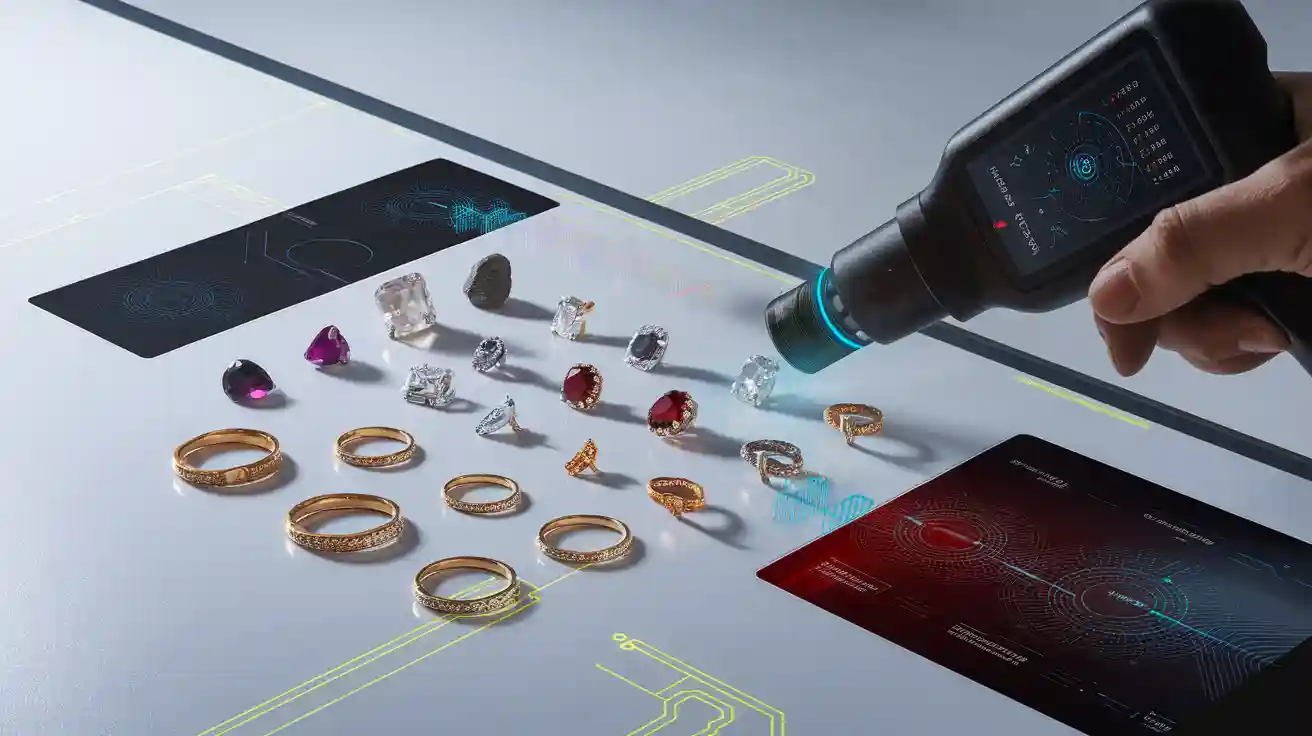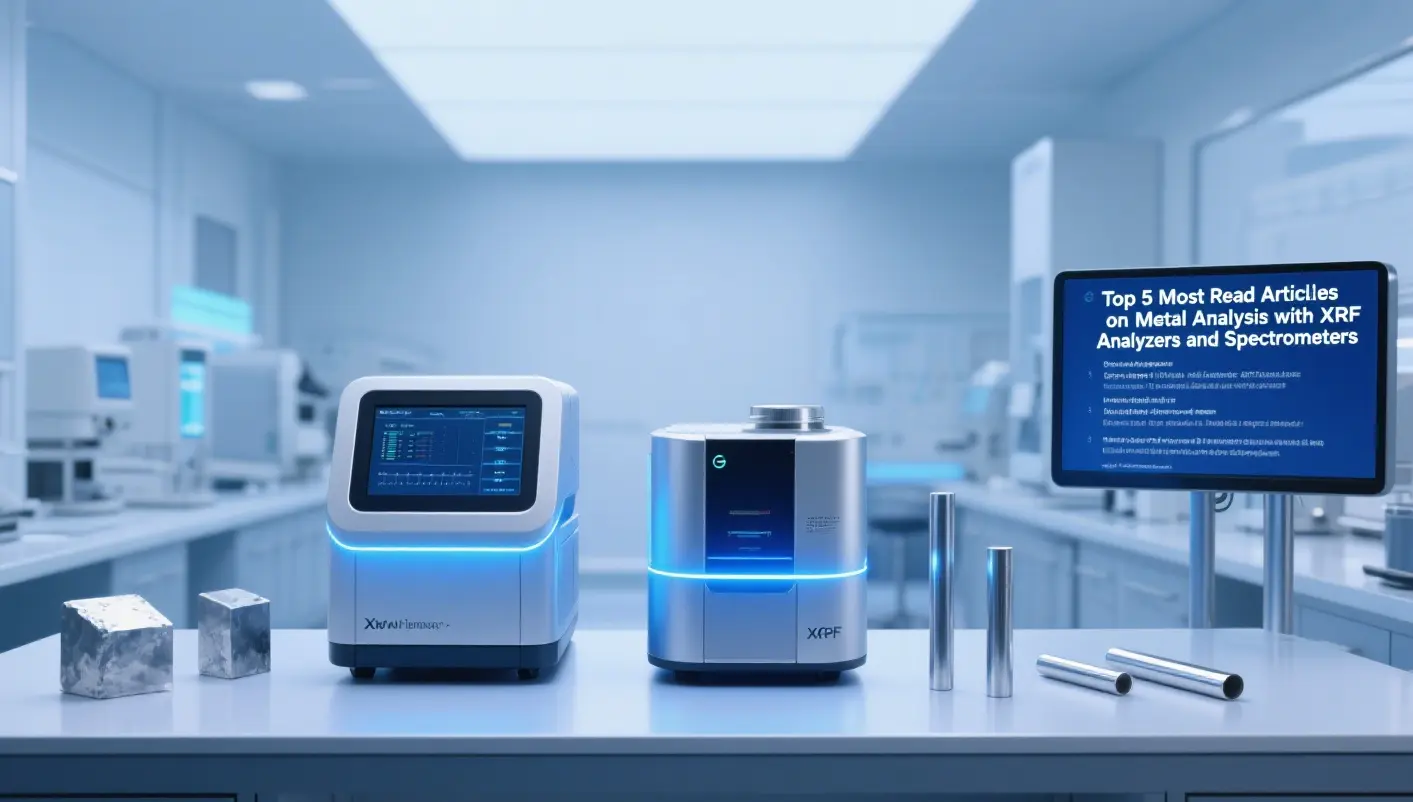How Accurate Is XRF for Testing Gold Purity?
In professional applications, a well-calibrated XRF analyzer can measure gold content to within ±0.03% to ±0.001%, depending on the instrument’s design and intended use. This level of precision means that XRF is fully capable of meeting the needs of jewelry shops, pawn brokers, refining plants, and even high-purity bullion manufacturers.

The key to achieving this accuracy lies in the instrument’s detector technology, software algorithms, and calibration standards. Premium devices, such as those from VRAY Instruments, are engineered to maintain consistent performance across a wide range of sample types—from raw gold nuggets to intricate jewelry pieces—without damaging the item being tested.
Why XRF Is So Accurate for Gold Testing
The high accuracy of XRF gold testing comes from several factors:
- Direct elemental analysis – XRF measures the actual elemental composition of a sample without altering it, which eliminates errors caused by chemical reactions or sample preparation steps.
- Advanced detectors – Silicon PIN (Si-PIN) and Silicon Drift Detectors (SDD) deliver exceptional sensitivity to detect trace elements that can affect purity.
- Multi-FP algorithms – Modern instruments use advanced computation to adjust for variations in surface finish, sample geometry, and background interference.
- Stable calibration – Professional-grade XRF analyzers maintain calibration over long periods, ensuring repeatable, trustworthy results.
For most commercial gold testing, XRF results are accurate enough to be legally accepted in transactions and quality certification. In high-end manufacturing and refining, specialized instruments like VRAY’s VR-T9 can achieve ±0.001% accuracy—enough to differentiate between 99.999% and 99.9999% purity gold.
Comparing XRF to Other Gold Testing Methods
While traditional fire assay is still the absolute benchmark for accuracy, it’s slow, destructive, and requires a skilled laboratory environment. Acid testing is inexpensive but far less accurate and can damage samples. Compared to these:
- XRF is non-destructive – The tested item retains full value.
- XRF is fast – Results in seconds rather than hours or days.
- XRF is versatile – Works for jewelry, scrap, coins, and industrial gold materials.
- XRF can test other metals – Useful for silver, platinum, palladium, and rhodium analysis.
Factors That Influence XRF Accuracy
Even with advanced technology, the accuracy of XRF gold testing depends on:
- Surface cleanliness – Dirt, coatings, or oxidation can affect results.
- Sample homogeneity – Inclusions or layered materials may produce misleading readings.
- Proper calibration – Using appropriate reference standards for the intended gold type.
- Instrument quality – Higher-end detectors and software deliver higher precision.
VRAY Instruments designs its devices with these factors in mind, using enhanced interference reduction programs, X-ray tube protection systems, and optimized measurement geometries.
Recommended VRAY XRF Models for Accurate Gold Testing
- For Jewelry Shops & Pawn Brokers
- VR-X5 – Integrates a high-sensitivity Si-PIN detector with a built-in computer and HD display. Tests over 20 elements, ideal for purity verification in customer-facing environments.
- VR-N3 – Reliable, easy-to-use, with advanced protection features to ensure stable, repeatable results in high-traffic retail settings.
- For Mobile & On-Site Testing
- VR-M5 – Portable, lightweight, with an 8-hour battery and HD camera. Perfect for door-to-door gold buying, trade fairs, or remote mining inspections.
- VR-H5 – Handheld, fast, and highly durable with dual-beam detection. Excellent for mining grade analysis and mobile gold recycling.
- For Refiners & High-Purity Applications
- VR-T9 – Ultra-high precision ±0.001% with spectrum comparison and custom reporting. Ideal for 99999 gold QC, bullion verification, and electronics gold testing.
- VR-S6 – Compact benchtop EDXRF with ±0.03% precision and full element range analysis, suitable for laboratories and quality inspection facilities.
Why Choose VRAY Instruments for Gold Purity Testing
- Proven industry expertise – Years of R&D in precious metal analysis.
- Comprehensive product range – From handheld units to high-end laboratory systems.
- Customization options – Tailored solutions for different industries and testing needs.
- Technical support – Professional guidance for calibration, operation, and maintenance.
VRAY’s commitment to innovation, professionalism, and integrity ensures that each analyzer delivers reliable results that customers can trust.
Best Practices for Getting the Most Accurate XRF Results

- Clean the sample surface before testing.
- Test multiple points on irregular items.
- Use proper collimators for small or intricate samples.
- Calibrate the instrument regularly with certified reference materials.
- Follow the manufacturer’s guidelines for measurement time and positioning.
Conclusion
XRF technology offers a fast, accurate, and non-destructive solution for gold purity testing, with accuracy levels sufficient for everything from retail transactions to industrial refining. By choosing a high-quality analyzer and following best practices, professionals can achieve results that rival laboratory standards—without the delay or cost of destructive methods.
With VRAY Instruments, you gain access to precision engineering, industry-leading software, and dedicated support, ensuring that every gold purity test you perform is both reliable and efficient.
Frequently Asked Questions
Q1:Can XRF detect fake gold?
A1:Yes. XRF can identify base metals or gold-plated items by analyzing the elemental composition beneath the surface.
Q2:Is XRF safe to use in a store environment?
A2:Yes. VRAY XRF analyzers are designed with radiation shielding and safety interlocks to meet safety regulations.
Q3:Does XRF require special training?
A3:Basic operation is straightforward, but VRAY provides professional training to ensure accurate, consistent results.
Q4:How long does an XRF test take?
A4:Typically 5–30 seconds per sample, depending on the instrument and required precision.
Q5:Can XRF test gold purity through packaging or casing?
A5:No. The surface being tested must be directly exposed to the X-rays for accurate results.

WhatsApp
Scan the QR Code to start a WhatsApp chat with us.